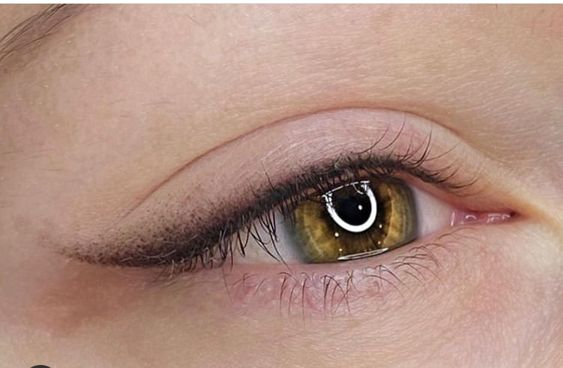
Discover the Skin-Enhancing Perks of Apple Cider Vinegar – Your ACV Guide
Apple Cider Vinegar, a staple in the pantry of health enthusiasts around the globe, has been touted for its multifaceted health benefits, notably for the skin. Its origins dating back to ancient civilizations, ACV’s holistic appeal continues into the modern day. Comprising mainly of acetic acid, vitamins, minerals, and a host of other beneficial compounds, it is claimed to improve the skin’s health from within. This article delves into the science and the anecdotal evidence behind these claims to reveal the potential benefits of drinking apple cider vinegar for your skin.
What Makes Apple Cider Vinegar Special For Skin?

On a quest to understand the skin-nourishing secrets of apple cider vinegar, it is crucial to first break down its constituents. ACV is rich in acetic acid, but also contains vitamins like vitamin B and vitamin C, along with minerals such as potassium and magnesium. Additionally, the presence of antioxidants and amino acids make it a potent concoction for combating skin issues. These elements play a pivotal role in rejuvenating and repairing the skin, proving that ACV’s special touch extends beyond its acidic tang.
Harnessing the Power of ACV for Your Skin

Drinking apple cider vinegar could be the missing component in your skin care regimen. Its power to enhance skin health is witnessed in its ability to potentially clear and brighten the complexion. With its antimicrobial properties, ACV can help in the management of bacterial skin conditions. Moreover, through internal detoxification it influences the outward appearance of the skin, providing it with a chance to heal and to renew itself naturally and holistically.
Balancing pH Levels for a Radiant Complexion
The skin’s pH is a delicate balance that, when disrupted, can lead to issues like dryness or oiliness. ACV’s acidity is said to help balance the skin’s natural pH when ingested, which helps to stabilize sebum production and maintain a healthy skin barrier. The anecdotal evidence for these benefits is strong, with stories of smoother, more balanced skin being a common thread among regular drinkers of diluted ACV.
The Detoxifying Effects of ACV on Skin
One of apple cider vinegar’s most praised benefits for skin is its detoxifying effect. This occurs as ACV helps the body purge toxins and fight oxidative stress, which can lead to clearer and more vibrant skin. The antioxidants found in apple cider vinegar, such as polyphenols, combat free radicals that contribute to skin aging. This internal cleanse can potentially be reflected in a healthier and more youthful skin appearance.
How to Safely Incorporate Apple Cider Vinegar into Your Diet for Skin Benefits
Introducing ACV into your daily routine should be done with care to ensure it’s both safe and effective. Diluting the vinegar before consumption is key to protecting the teeth and the esophagus from its strong acidity. To aid you in your journey towards improved skin health through ACV, consider the following recommended intake and preparation methods:
- Begin with a smaller dose: About one teaspoon to one tablespoon of ACV in a large glass of water, once or twice daily.
- Dilute properly: Always mix with water to minimize potential damage to your teeth and digestive lining.
Common Myths and Facts About ACV and Skin Care
Apple cider vinegar (ACV) is often touted as a miracle cure-all for a variety of skin issues, but it’s important to separate fact from fiction. Here’s a table addressing some common myths and presenting the facts about ACV’s role in skincare:
| Myth | Fact |
|---|---|
| ACV can cure acne. | While ACV has antibacterial properties that may help reduce bacteria on the skin’s surface, it is not a cure for acne and should be used cautiously as it can cause skin irritation or chemical burns if not diluted properly. |
| ACV is good for skin hydration. | ACV is not hydrating for the skin; in fact, its high acidity can strip natural oils, leading to dryness. It’s important to moisturize after using ACV on the skin. |
| Using ACV on your skin has no side effects. | ACV can cause skin irritation, especially in those with sensitive skin or when applied undiluted. Always perform a patch test and dilute ACV with water before applying it to your skin. |
| ACV can replace professional skincare treatments. | While ACV can be a useful part of a skincare routine for some, it does not replace professional advice or treatment for skin conditions. Always consult with a dermatologist for serious skin issues. |
Conclusion
Apple cider vinegar does indeed come with a promise of skin benefits. Through its potential to balance pH levels, its detoxifying properties, and antioxidant content, ACV can be a valuable addition to your diet for seeking improved skin health. Remember, moderation is key and always consider medical advice before integrating new supplements into your daily routine. Apple cider vinegar could be the natural skin tonic you’ve been looking for.
FAQs About Drinking Apple Cider Vinegar for Skin Health
- 1. How long does it take to see skin benefits from drinking apple cider vinegar?
- While individual experiences will vary, some might see changes in their skin condition within a few weeks; for others, it could take a couple of months. Consistency and patience are crucial when using ACV as part of your skin care strategy.
- 2. Can drinking apple cider vinegar help with acne?
- ACV may contribute to managing acne by reducing inflammation and bacteria, though it’s not a standalone treatment. It’s most effective when incorporated into a comprehensive skin care plan.
- 3. How much apple cider vinegar should I drink daily for skin benefits?
- The recommended starting amount is one teaspoon to one tablespoon of ACV in a glass of water, once or twice a day. Always dilute it and consider increasing the dose gradually to assess tolerance.
- 4. Can apple cider vinegar have negative effects on the skin if consumed?
- Consuming ACV in excessive amounts can lead to side effects such as digestive discomfort and low potassium levels. Always drink it in moderation and dilute it to minimize risks.
- 5. Should apple cider vinegar be taken on an empty stomach or with meals for skin benefits?
- There’s no one-size-fits-all answer to this; some favor taking it on an empty stomach for maximum detoxification, while others find it more comfortable to consume with meals. Pay attention to how your body responds and adjust accordingly.


